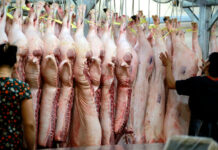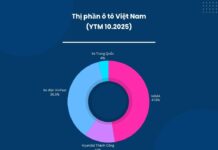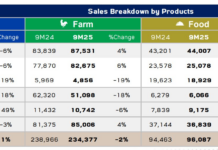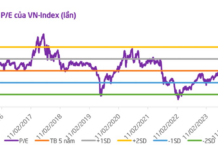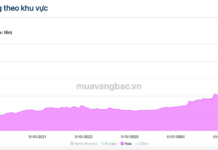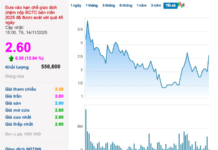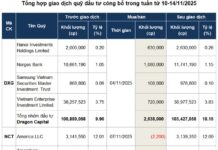On November 15, the Vietnam Pepper and Spice Association reported, citing information from the White House website, that U.S. President Donald Trump signed an Executive Order amending the scope of retaliatory tariffs announced on April 2, 2025, to address significant trade deficits.
Under this order, certain eligible agricultural products will no longer be subject to retaliatory tariffs. In essence, the U.S. has exempted these items from the tariff list.
The products exempted from retaliatory tariffs include: coffee and tea; tropical fruits and juices; cocoa and spices; bananas, citrus fruits, tomatoes; and beef.
The tax exemption will take effect from November 13 (U.S. time).
According to the Vietnam Pepper and Spice Association, this decision is a positive signal, as imported spices may face reduced tariff barriers if they qualify for exemption.

Pepper and spices benefit from reduced U.S. retaliatory tariffs
For Vietnam, a major exporter of pepper and spices, this presents a favorable opportunity to regain market share in the U.S., provided businesses meet import standards, quality requirements, and certifications.
However, the Association notes that exemption from retaliatory tariffs does not mean exemption from all import taxes. Businesses must still comply with standard U.S. import taxes, customs procedures, food safety standards, and certifications.
Additionally, not all agricultural products are exempt. While spices are included, Vietnamese businesses should verify details with U.S. importers and stay updated on non-tariff risks, such as sanitary and phytosanitary (SPS) measures, residue testing, and traceability.
In the coffee sector, news of the U.S. tariff exemption has caused significant price drops in recent sessions, highlighting the need for continued monitoring of policy impacts.
U.S. Officially Eliminates Retaliatory Tariffs on Coffee and Pepper
Businesses should meticulously review all details to proactively mitigate tax-related and non-tariff risks.
Navigating U.S. Tax Challenges: A Critical Test for Businesses
The U.S.’s 20% retaliatory tax on imports from Vietnam presents a significant challenge, yet it also serves as a critical test for businesses to restructure their market strategies and enhance competitiveness. With thorough preparation and support from local authorities, companies can not only retain their market share but also explore opportunities for expansion.
U.S. Tax Challenges: A Critical Litmus Test for Businesses
The 20% reciprocal tax imposed by the U.S. on imports from Vietnam presents a significant challenge, yet it also serves as a critical test for businesses to restructure their market strategies and enhance competitiveness. With thorough preparation and support from local authorities, companies can not only retain their market share but also explore opportunities for expansion.

